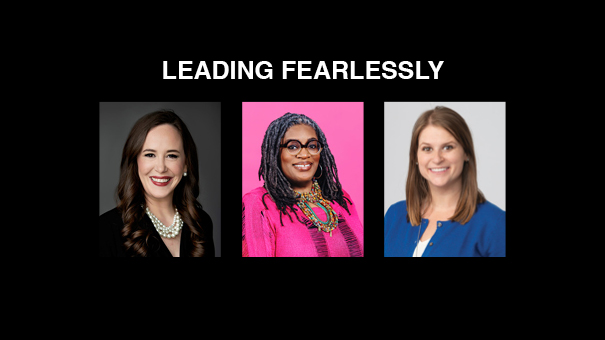Leading Fearlessly: Women face digital overload at a higher rate than men


Have you ever stopped to count how many digital tasks you perform regularly? I conducted an inventory of my own digital usage recently and was a little stunned by the number of activities I perform on numerous devices — everything from managing work and personal schedules, documents, emails, texts and calls; handling personal finances; ordering groceries and household supplies; checking the weather; booking travel; tracking exercise; looking up recipes — and even renewing my husband’s fishing license.
Like most Americans, you may be in digital overdrive, but as a woman you may be shouldering an even bigger digital burden than you realize. A recent cross-national study published in the journal Community, Work & Family shows that women are facing digital overload at greater rates than men.
As if we are not already busy enough, it turns out that technology is adding to women’s already full mental workloads. Because men tend to use technology primarily at work but women use technology to manage both work and home lives, women are especially affected — and it is worse for women with children.
“When it comes to using technology at home, women tend to do more of the day-to-day online work for the family, creating an extra digital burden,” says a BBC article. Women, who also work from home more than men, tend to manage more of the family’s home needs and schedules, kids’ school assignments and activities, shopping and other tasks that involve online use.
“This work-family ‘digital double burden’ heightens the potential risk of digital overload and burnout for women,” says an article in Phys.org.
The last thing women need is one more obstacle as we strive for success in work and life. So, what can we do to put boundaries around our digital use?
I turned to local leaders to ask how they’ve experienced and managed digital overload at home or work — and how employers or partners help prevent this overload.

Erica Axiotis, president, UnityPoint Health Foundation
In our roles as working mothers, employees and leaders, we are constantly receiving messages that need to be dealt with, delegated or deleted. The effects of digital overload are akin to physical clutter. Clearing digital space is helpful in many ways and can lead to better mental health and also improved outcomes in all aspects of life.
Take an assessment of what is truly needed to stay up to date in your subscriptions as a starting point. Get rid of what is not needed; there’s an unsubscribe button for good reason. Enlist your team as a designee for specific communications to cascade those messages on further. Also, give yourself and others grace in terms of the speed that we respond.

Abena Imhotep, CEO, Sankofa Literary and Empowerment Group
As a woman balancing work and home life, I know firsthand how overwhelming constant digital demands can be. That’s why I’ve made it a priority to set clear boundaries around screen time, and I encourage others to do the same. I even include a note in my email signature reminding people to respect personal time and prioritize joy.
One of the most helpful things an employer or partner can do is support those boundaries. Respecting after-hours communication limits allows for a true mental break. Encouraging regular digital detoxes — whether it’s a day off or an hour away from screens — makes a huge difference in reducing stress. Flexibility in work schedules is also key. Having the freedom to manage both professional tasks and personal responsibilities without feeling constantly connected is empowering.
Making these shifts is a move toward protecting our mental health and embracing a more joyful, balanced life.

Emily Schultz, managing director, BrokerTech Ventures
Digital overload affects both men and women, but in my experience as a woman, I believe organizations can reduce its effects by promoting an overall culture of well-being and treating employees as whole professionals. This means offering flexibility during the workday, allowing women, parents and all employees to manage personal needs and take necessary breaks, while being trusted to manage their schedule and complete their work. It also means prioritizing mental health and well-being. When autonomy and flexibility are prioritized, I believe the negative effects of our digital culture are significantly reduced, while at the same time, ownership and pride in our output increases. In addition, I believe in promoting the ability to truly unplug outside of work in order to reset and rebalance.

